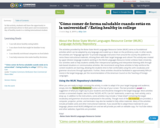
In this activity, students will have the opportunity to give nutritional advice to their peers and recommend a day of healthy meals to a visiting international student.
- Subject:
- Arts and Humanities
- Material Type:
- Activity/Lab
- Date Added:
- 03/11/2019

In this activity, students will have the opportunity to give nutritional advice to their peers and recommend a day of healthy meals to a visiting international student.
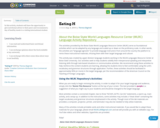
In this activity, students will have the opportunity to give nutritional advice to their peers and recommend a day of healthy meals to a visiting international student.
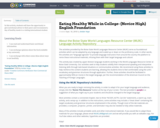
In this activity, students will have the opportunity to give nutritional advice to their peers and recommend a day of healthy meals to a visiting international student.
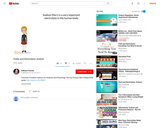
Short video covering sodium and electrolyte balance for anatomy and physiology.
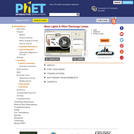
Produce light by bombarding atoms with electrons. See how the characteristic spectra of different elements are produced, and configure your own element's energy states to produce light of different colors.

This resource is a video abstract of a research paper created by Research Square on behalf of its authors. It provides a synopsis that's easy to understand, and can be used to introduce the topics it covers to students, researchers, and the general public. The video's transcript is also provided in full, with a portion provided below for preview:
"Plant diversity is quickly dwindling across the world. That’s put our planet’s pollinators in danger. Pollen contains a variety of nutritional elements that are key to life itself. Not only are global changes affecting pollen amounts, they’re also affecting pollen varieties. This means that many pollinators, including bees, aren’t eating the best-balanced diet they need to survive. Understanding how the elemental ingredients in pollen affect different traits in bees, such as their survival, body mass, and ability to protect themselves, could help scientists determine whether and how the scarcity of specific nutrients affects them. And it could lead to new ways of conserving pollinators and the critical roles they play in many ecosystems. For their part, researchers from Jagiellonian University in Poland examined the effects of an inadequate supply of potassium, sodium, and zinc in pollen on _Osmia bicornis_, the red mason bee..."
The rest of the transcript, along with a link to the research itself, is available on the resource itself.